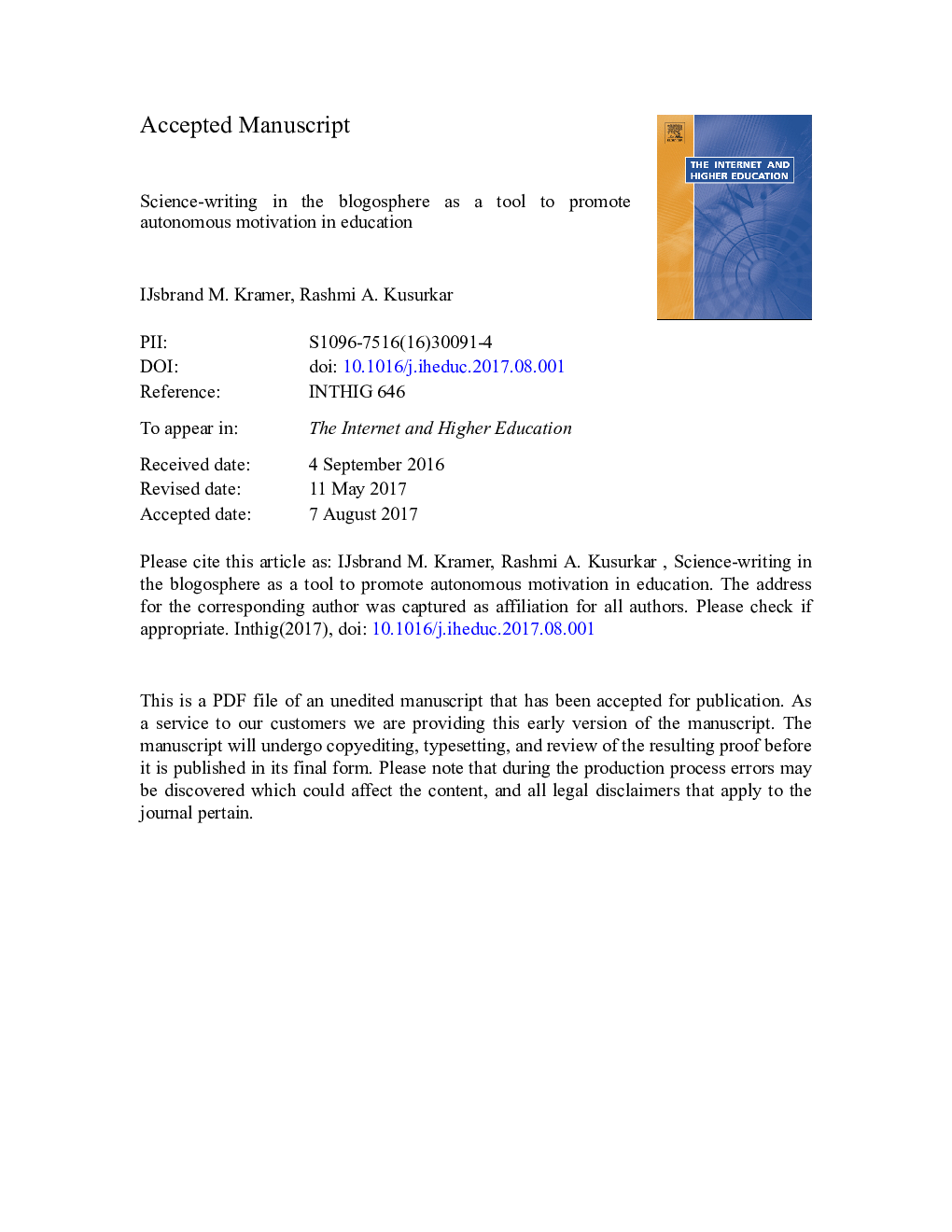| Article ID | Journal | Published Year | Pages | File Type |
|---|---|---|---|---|
| 4938814 | The Internet and Higher Education | 2017 | 39 Pages |
Abstract
We sought to establish a collaborative learning environment for our first-year university cell biology course that would be sufficiently challenging to warrant team effort and turn students into autonomous learners. We chose team-based science-writing blogs, a choice grounded in the Self Determination Theory. This theory posits that a sense of autonomy, competence and relatedness are essential requirements to perform a task in an autonomous-motivated fashion. Through surveys over a period of four years, we assessed how students perceived the blog project. Qualitative analyses revealed that students recognized and appreciated their autonomy. They also consistently considered as positive a sense of competence, expressed as being useful, and relatedness, i.e. relating with others and working together. A quantitative analysis based on an intrinsic-motivation inventory revealed that students experienced science-writing on the web as an intrinsically motivating learning task. We conclude that web-based learning triggers motivation to learn autonomously and discuss how task authenticity may play an important role in this process.
Related Topics
Social Sciences and Humanities
Social Sciences
Education
Authors
IJsbrand M. Kramer, Rashmi A. Kusurkar,
